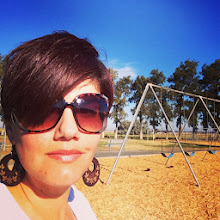I love this book. This is my second time through the book. It's by Dr. Glenn I. Latham. His points are so common sense and so logical, but so easy to forget in the heat of parenting. So, I figure I'll read it now so that in the heat of parenting, I will already have some tools in my arsenal and avoid the common escalation that takes place between parents and children.
It's a little unusual in that it reads more like a textbook than your typical parenting book. It encompasses all age groups so every parent out there can benefit from reading it. I believe it is one of those books that will absolutely change your relationship with your child (or anyone who insists on acting like a child).
Here are a few ideas that hit home for me:
- Unlike the past, circumstances aren't going to raise our children. We are! (i.e: not completing the chore of chopping wood will lead to no fire which will lead to no dinner. that type of scenario very rarely exists so we as parents must set the expectations and consequences of behavior choices)
- Parents are typically five to six times more likely to have negative interactions with their children than they are to have positive interactions with them. Parents are so anxious to set their children straight that they feel compelled to "nip it in the bud" by getting after their kids EVERY time they do something wrong. Unfortunately, this ultimately produces just the opposite of what is desired. Since behavior is typically strengthened by parental attention (positive or negative), by attending to inappropriate behavior we are far more likely to increase its frequency. The far better way is to give positive attention to the things our children do appropriately. (The behavior he speaks of is "age appropriate junk behavior" such as whining. Of course, some behaviors must be death with and squelched and his gives great examples on how to do so without engaging in argument or power struggles or by coercion.)
- Unless what you are about to say or do has a high probability for making things better, don't say it and don't do it.
- Misbehavior in children must be recognized as a need to teach appropriate behavior, not an excuse to punish. Punishment is a terrible teacher; it only teaches children how to misbehave. (How true! Correction must include direction.)
- It is important to understand that treatment might not have the immediate effect we want it to have. In fact, in some instances the behavior might get worse for a short period of time. However, if the treatment is correct and correctly applied, regardless of what behavior is being treated, the probability is very grew that the behavior will eventually improve. (We want things to be perfect and we want it now! I can tell you that my experience with training horses has absolutely made this point clear. Things almost always get worse before they get better and the first time you try to teach anything is always going to be the ugliest. But if you know what you're doing is founded on sound principles, stick to it!)
- Fix the environment, fix the child. (Get your crap together and be consistent.)
- Good parenting requires constant tuning and retuning the environment of home and family.
- Our job isn't to create perfect, risk-free children. That is impossible. Our job is to create in our home an environments that will teach children and reinforce children for behaving appropriately.
- As parents we must realize that children are in the process of becoming civilized.
- Clearly communicate your expectations to your children.
- Pay no matter to inconsequential behaviors you don't want repeated.
- Never tell children something they already know. Let them tell you. (When teaching, don't ask and answer out of frustration. Wait for your child to remember what they know and give them space to be heard. For example, what are privileges they enjoy when they behave correctly, what are consequences for making poor choices.)
- Agreeing with parental expectations is less important than understanding them.
- Don't be distracted by age-typical, garden-variety, weed behavior. (Such as eye rolling.)
- Children will engage in junk behavior over which we parents have zero control. (Annoying yet harmless fads and phases that are best ignored. Not worth damaging your relationship over.)
- Virtually all children, in the course of a day, will do or say something that is worth reinforcing. (Even the really rotten ones.)
- People never outgrow their need for positive praise.
And this is just from the first three chapters. I'll continue to share little snippets as I read on further. Some of the meaning is lost without the context so, of course, I encourage every one of you who is a parent, knows a parent, knows a child, or is breathing to run out and read this book.

1 comment:
might have to get this one. Sounds interesting!
Post a Comment